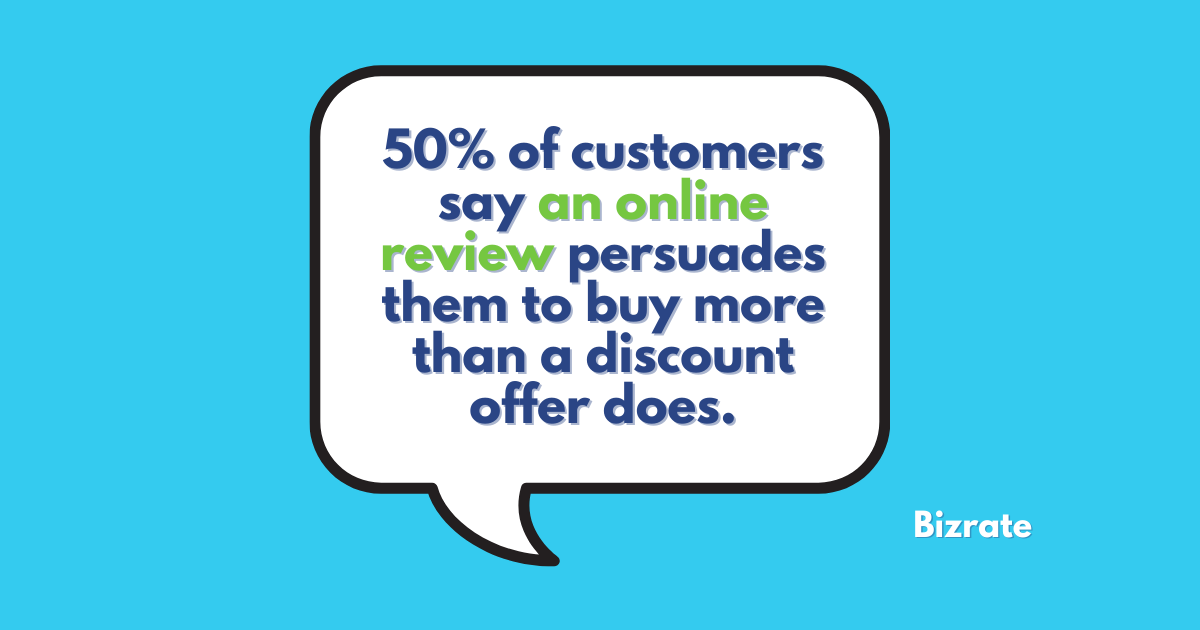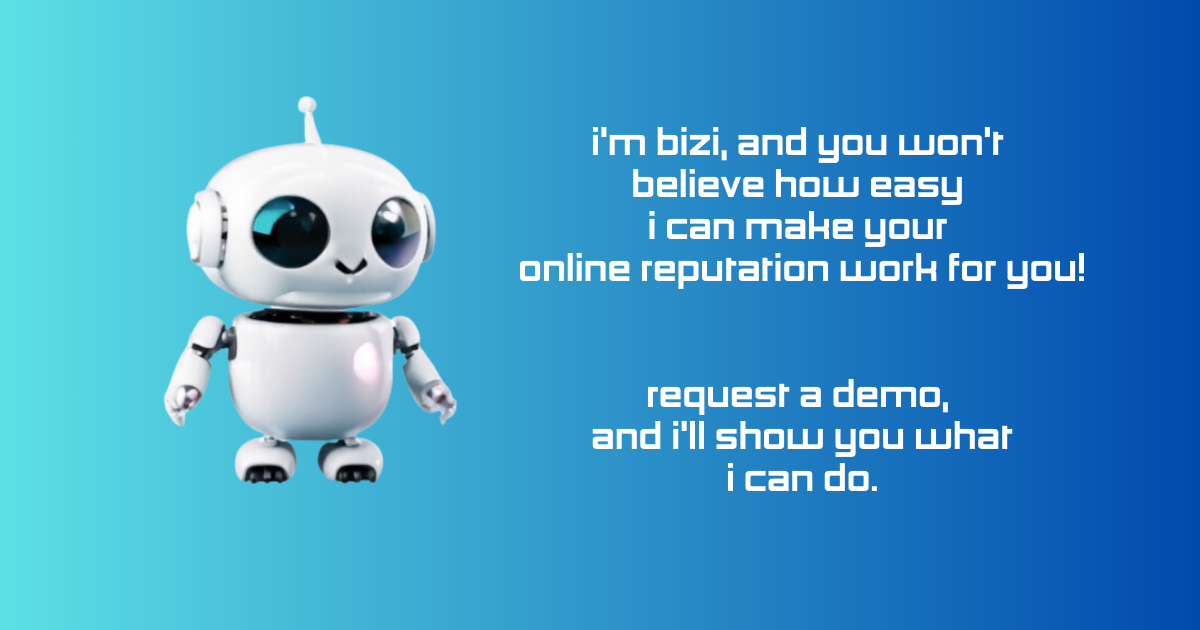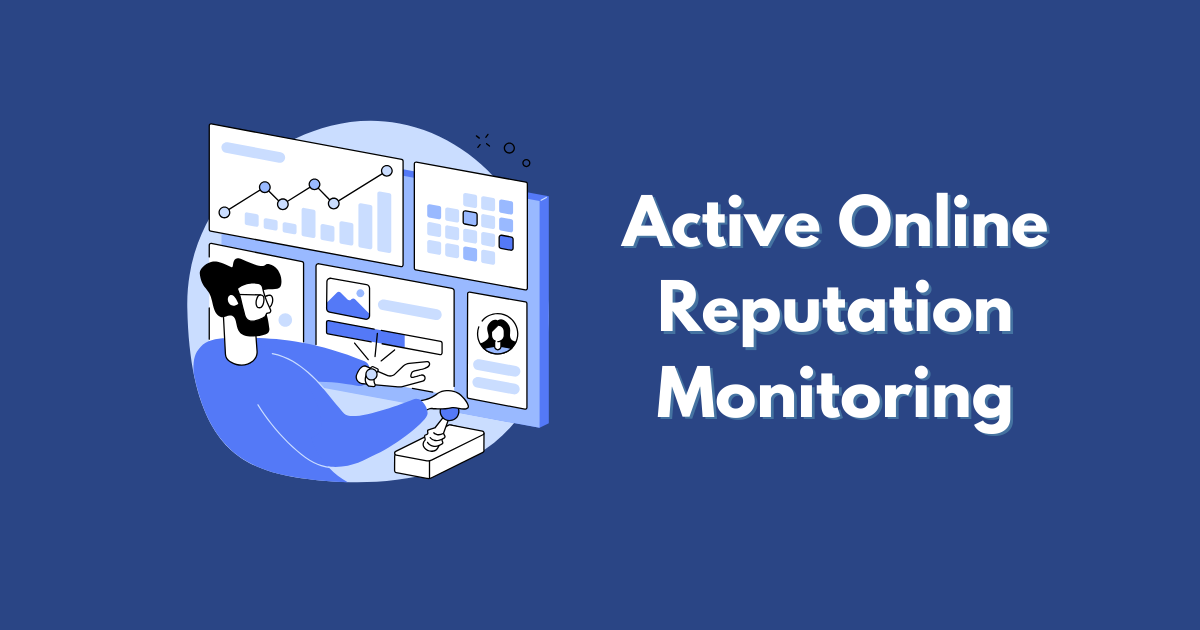2024 Guide to Reputation Management, Monitoring, and Marketing

Imagine it's December 2024. You're sitting in your office, reflecting on the year gone by. It's been the best year your local business has ever seen. The phone has been ringing off the hook, your customer base has doubled, and your revenue has hit an all-time high. But rewind to the start of the year, things were quite different.
Back then, your business was just another name in the local market. Despite offering top-notch services, you struggled to stand out. That was until you realized the power of reputation management, monitoring, and marketing. You decided to take control of your business's online presence, actively manage your reputation, and leverage it to market your brand. This decision turned out to be a game-changer.
This guide is about that transformation.
It's a roadmap for local businesses like yours to harness the power of online reputation in 2024. Whether you're a seasoned business owner or just starting, understanding and implementing these strategies could be the key to making 2024 your best year yet.
Why Your Online Reputation Is Your Business Lifeline in 2024
In today's digital-first world, your online reputation isn't just a part of your overall image… it is your image.
The digital footprints left by your business – from customer reviews and social media interactions to the content on your website – are the building blocks of your public persona. In an age where the line between free speech and slander is increasingly blurred, managing your online reputation has become a critical mission. With over 90% of consumers turning to online reviews before making a purchase, ignoring your online reputation is akin to turning a blind eye to the heartbeat of your business.

The Critical Role of Online Reputation Management
Online Reputation Management (ORM) is no longer just a strategic asset. It's a survival tool in the cutthroat business landscape of 2024. In fact, most sales you make most likely come your way as a result of your online reputation.
In fact, a Podium study revealed that 93% of users say that online reviews have impacted their buying decisions.
And get this. Bizrate reports that 50% of customers say an online review persuades them to buy more than a discount offer does.
The truth is, it’s almost guaranteed that your prospective customers are reading all about you online before making their final decision. They’ll visit your website, probably check you out on social media, maybe have a phone conversation with your sales team… but they will DEFINITELY read your reviews.
The question is, what are they going to find there? And even more importantly, how’s that going to compare with your competitors’ online reviews?
Let’s get down to nuts and bolts.
Practical Steps to Start Managing your Online Reputation
Assessing Your Brand's Online Reputation: Where Do You Stand?
Understanding your current online reputation is the first step in effective management. Begin by conducting a simple search of your business name across search engines and social media.
What you find here – be it positive reviews, neutral mentions, or negative feedback – sets the stage for your reputation management strategy. It's like taking a snapshot of your digital footprint to see how your brand is perceived from the outside.
There’s an easy way to see where your online reputation is right now. Just click to request your free business scan.
How to Monitor What People Say About Your Business
Monitoring what people say about your business is integral to efficient reputation management. Here's how you can do it:
- Set Up Google Alerts: Google Alerts lets you track mentions of your brand across the web. Whenever your business name (or any other term you specify) is mentioned online, the tool sends you an email notification, allowing you to promptly respond or take action if necessary.
- Use Social Listening Tools: BizBooster AI helps you monitor your brand's social media mentions across platforms, enabling you to stay on top of discussions about your business and respond promptly. These tools can also help you uncover specific terms that pop up in customer conversations assisting in improving your services or products.
- Monitor Reviews: Customer reviews on platforms like Google, Facebook, Yelp, and industry-specific sites provide valuable insights into customer sentiment and experiences. Regularly checking and responding to these reviews is crucial in managing your online reputation.
- Brand Mention Monitoring Tools: BizBooster AI notifies you when your business is mentioned online, be it on social media platforms, blogs, or forums. Early notice helps you correct misinformation or damaging accusations before they become a widespread issue.
- Analyze Feedback: Be open to the feedback, both positive and negative. Understanding and accepting criticism where it's due can significantly strengthen your reputation management efforts.
Overall, being proactive in monitoring what is being said about your business online enables you to navigate and shape your reputation effectively.

Effective Strategies for Online Reputation Management
Responding Quickly and Politely to Criticisms
Reacting quickly and courteously to criticisms is a key aspect of reputation management. It underscores your business's professionalism and commitment to customer satisfaction – a vital factor in maintaining an excellent online reputation. Here are some suggestions for doing so effectively:
- Quick Acknowledgement: Respond to criticisms swiftly. A prompt reply, even if it's simply to say, "Thanks for your feedback. We're looking into the issue and will get back to you soon," can make customers feel heard and valued.
- Keep It Polite and Professional: When responding to criticisms, always maintain a polite and professional tone. Avoid getting defensive or arguing with the customer. Instead, focus on resolving the issue and turning the negative experience into a positive one.
- Personalize Your Reply: Avoid using generic replies. Instead, personalize your responses to each customer based on their individual feedback. This shows customers that you're genuinely addressing their concerns and not just brushing them off with a standard response.
- Take the Conversation Offline: Major issues should be handled offline whenever possible to avoid any unnecessary conflict or back-and-forth. Provide a direct contact method (email or phone number) for customers to discuss their concerns in further detail.
Remember that criticisms represent an opportunity to boost your online reputation, provided they are handled tactfully and proactively. It may sound cliché, but a positive attitude in the face of criticism can significantly improve your reputation management efforts.
Learning from Both Positive and Negative Feedback
Positive and negative feedback are both essential elements of your reputation management strategy. They provide valuable insights into your business's strengths and areas for improvement.
Positive Feedback: Positive feedback affirms that your business is on the right track. It reveals which aspects of your business are appreciated by your customers, be it product quality, customer service, or your brand's values. It also serves as social proof, potentially influencing other customers to choose your products or services.
Negative Feedback: Although negative feedback may initially seem damaging, it can often be a source of valuable insights. It alerts you to potential problems and provides an opportunity to improve your products or services. By addressing the issue promptly and professionally, you can turn a negative situation into a positive one, demonstrating commitment to customer satisfaction.
Remember, each piece of feedback, whether positive or negative, is valuable. Analyzing, understanding, and acting upon them proactively can significantly improve your online reputation and positively affect your bottom line.

The Potential Challenges and Pitfalls of Online Reputation Management
Understanding the Influence of Popular Media on Reputation Management
In an era where everyone is a content creator, the impact of popular media on online reputation management is significant. Social media platforms, blogs, review websites, digital news outlets, and influencers all shape public perceptions about your brand, for better or worse.
Speed and Reach: Popular media platforms have incredibly fast, wide, and global reach. News and stories can be shared and spread around the world in seconds, allowing the public to form an impression of your brand instantly.
Influence Perceptions: The way media portrays your company can greatly influence how it is perceived. A single viral negative post or newsworthy scandal can quickly damage your reputation, while positive press coverage can enhance it.
Influence of Influencers: Influencers with large followings and credibility can play a significant role in reputation management. Their endorsement or criticism can swing their followers’ attitudes towards your brand.
User-Generated Content: Popular media generates diverse user content, including reviews, testimonials, and visuals about your products or services. Such content can heavily influence potential customers’ decision-making.
Therefore, understanding and leveraging the power of popular media is an integral part of effective online reputation management in the digital age. It’s crucial to monitor these platforms carefully and respond to any potential issues promptly and effectively.

The Challenge of Managing Unfair or Illegitimate Criticisms
One of the main challenges of online reputation management arises from unfair or illegitimate criticisms. In a world where “freedom of speech” is often respected, people can voice whatever opinions they hold of your business irrespective of their validity. This unfiltered nature of the feedback provided online can sometimes lead to unjustifiable negativity about your brand.
Unfair criticism presents a unique challenge for businesses. Firstly, there is the issue of identifying these illegitimate criticisms amongst genuine feedback. Secondly, there is the challenge of deciding how to manage them. Responding to these criticisms might give them attention they don't deserve, while ignoring them can allow them to spread unchecked.
In some extreme cases, unfair criticism can venture into illegal behavior, such as when false information is shared with the explicit intention to harm your business's reputation. While you can't control your critics, there are steps you can take to mitigate the damage. This includes:
- Fact-checking and debunking false information
- Reporting false or damaging content to the platform where it's posted
- Using legal recourse for defamatory statements
- Using strategic SEO to push down negative results
- Providing regular, positive content to counter negative visibility
However, remember that authentic constructive criticism is an opportunity for improvement and shouldn't be dismissed in the process of managing unfair criticisms. Responding to valid feedback in an open, transparent manner fosters customer trust and strengthens your overall online reputation.
Tools and Technologies for Enhancing Online Reputation Management
Best Practices for choosing an Online Reputation Management Tool
Choosing the right Online Reputation Management (ORM) tool can play a critical role in effectively managing your business's online presence. Here are some best practices to follow when selecting the perfect ORM tool for your needs:
- Understand Your Needs: Before shopping for tools, clearly define what you need from an ORM tool. Are you looking to track reviews, manage social media interactions, improve SEO rankings, or all of the above? Pinpointing exactly what you hope to achieve will guide your search.
- Do Your Research: Research what tools are in the market. There are several comprehensive ORM tools available, each offering different features and capabilities. Look for reputable tools that align with your business's needs and are trusted by other businesses in your industry.
- Check Review Sites: Online review sites provide valuable insights into user experiences with ORM tools. Look for reviews about the tool on sites like G2, Capterra, and TrustRadius. Pay attention to points about the tool's ease of use, effectiveness, and customer service quality.
- Consider Pricing: Cost is an important factor. Some ORM tool providers offer various payment models - monthly subscriptions, pay-per-user, or bespoke pricing based on your needs. Choose a tool that offers the features you need within your budget.
- Request a Demo or Trial: Most ORM tool vendors offer demos or trials. Utilize these to get a first-hand experience of the tool’s interface and capabilities.
- Ease of Use: The tool you choose should be user-friendly and straightforward to use. It should provide quick access to key features and generate concise, understandable reports.
Remember, the best ORM tool should enable you to monitor and manage your online reputation effectively, providing you with valuable insights and data trends to steer you towards effective reputation management.
Request a demo of BizBooster AI.

The Economic Impact of Online Reputation Management on Businesses
Unveiling Monetary Benefits of Well-Managed Online Reputations
A well-managed online reputation can offer measurable monetary benefits to businesses of all sizes. Below, we've outlined three ways ORM can directly impact your business's bottom line:
- Boosts Sales: Potential customers often research online before making purchasing decisions. It was reported that 97% of consumers read online reviews before making a purchase. Having a positive reputation can increase your brand's visibility and attract high-intent prospects, ultimately boosting sales.
- Greater Brand Value: Higher trust in your brand equates to higher brand value. Businesses with a well-managed online reputation can leverage their standing to command higher prices for products or services without affecting sales.
- Decreases Risk: Companies with poor reputations naturally tend to suffer more in times of crisis compared to highly-regarded companies. Well-managed online reputations can provide a kind of 'insurance policy' against negative public relations in the future.
Overall, you want to see an investment in ORM, not be seen as an added cost but rather as a strategic value-add that has the potential to yield significant financial dividends in the long run.
Real-life Success Stories Resulting from Effective Reputation Management Solutions
Numerous businesses across various industries have leveraged effective Online Reputation Management (ORM) solutions to enhance their brand image, foster customer trust, and boost financial performance. Here are two illustrative examples:
- Domino's Pizza: In 2009, when two employees filmed a prank in the kitchen and uploaded it on YouTube, it quickly went viral, endangering the reputation of Domino's Pizza. Domino's responded by firing the employees, issuing a public apology, and releasing a video response featuring their CEO, who outlined steps to prevent such incidents in the future. Consequently, within a year, Domino's had managed not just to recover its reputation but improve it, followed eventually by increased sales.
- Johnson & Johnson: Going back in history, Johnson & Johnson’s handling of the Tylenol crisis in 1982 is considered 'gold standard' in crisis management. After seven people died from consuming cyanide-laced Extra-Strength Tylenol capsules, they did not just recall 31 million bottles swiftly but also redesigned their product with tamper-proof packaging. Their transparency and prompt response protected their reputation, allowed them to recapture their market share, and reinstated their image as a trusted, customer-first company.
These examples demonstrate that even though the path to restoring a tarnished reputation can be challenging, it is feasible with strategic and systemic efforts. And the pay-offs, as these examples prove, can be substantial.

Wrapping It Up: The Evolution of Online Reputation Management in 2024 and Beyond
Current Trends Shaping Online Reputation Management
Online Reputation Management is continually evolving, owing to the rapid technological advancements and changing consumer behavior. Here are some current trends shaping the landscape of ORM:
Increased Focus on Review Management: As consumers increasingly rely on online reviews before making purchase decisions, businesses are focusing more on generating, managing and responding to them to maintain a strong and positive online footprint.
Rise of Social Media: The immense popularity of social networking sites makes them critical spaces to manage a business's reputation. Consumers are quick to voice their experiences and opinions about brands on these platforms.
Artificial Intelligence and Machine Learning: AI and ML are being used to monitor, analyze, and generate data-driven insights into a brand's reputation in real-time. AI-based tools like BizBooster AI can work around the clock, ensuring you’re aware of any potential issues that could impact your reputation.
Transparency and Authenticity: Consumers are becoming more discerning about brands' authenticity, accountability, and transparency. Businesses that demonstrate these qualities are able to form deeper connections with their audiences, enhancing their reputation.
Importance of Employee Advocacy: Happy employees make for an excellent group of brand ambassadors. Businesses that take care of their internal stakeholders and encourage their online advocacy are likely to see a positive impact on their reputation.
Staying at the forefront of these trends can help businesses navigate the dynamic ORM landscape and better position them to strengthen their online reputation.
Predictions and Expectations for the Future of Online Reputation Management
As technology advances and digital reliance increases, the methods and techniques for managing online reputation are bound to evolve. Here are some predictions for the future:
- Increased Use of Big Data: Businesses will increasingly use Big Data to gain deeper insights into consumer behavior and sentiment, enabling a more proactive and personalized approach to reputation management.
- Reputation Scoring: Just like a credit score, it's conceivable that there may be unified 'reputation scores' individuals or businesses in the future that helps determine trustworthiness at a glance.
- Enhanced Personalization: Future ORM strategies will be highly individualized, based on a thorough understanding of the unique characteristics, values, and behaviors of different customer segments.
- Evolving Role of AI and ML: Advances in AI and ML will continue to change how businesses monitor and manage their online reputations. They'll be able to more quickly identify potential threats and opportunities, predicting trends, and automating responses.
- Focus on Content Authenticity: With consumers becoming more sophisticated and suspicious of overly curated brand image, businesses will need to focus more on authenticity, ensuring that their content aligns with their values and their customers' experiences.
While these predictions are speculative, one thing is certain: the importance of online reputation management for the success of a business is only set to grow in the future.
Frequently Asked Questions about Online Reputation Management
Is online reputation management the same as SEO?
While Online Reputation Management (ORM) and Search Engine Optimization (SEO) are interrelated, they are not the same.
SEO is a strategy used to improve a website's visibility in search engine rankings. It involves the use of keywords, creating high-quality content, backlinking, and optimizing website structure to make a site more attractive to search engines. The primary objective of SEO is to drive organic traffic to your website.
On the other hand, ORM encompasses a broader range of strategies and techniques aimed at influencing the public perception of a brand (be it an individual or an organization) on the internet. While this may involve optimizing a website to rank higher in search results, ORM also includes monitoring and managing online reviews, responding to customer feedback, managing negative content, and creating a positive online presence across multiple platforms including social media, review websites, and news outlets.
Put simply, SEO helps your website become more visible, while ORM helps your brand look good across the entire internet. Both are valuable and often complementary parts of a comprehensive digital marketing strategy.
Why is online reputation management important for businesses?
Online Reputation Management (ORM) is crucial for businesses for various reasons:
- Creates Trust and Credibility: A positive online reputation fosters trust among consumers. Given the fact that about 97% of consumers read online reviews for local businesses, any review, tweet, or comment can influence their opinion—having a managed, positive online reputation comforts new prospects.
- Enhances Online Visibility: ORM strategies often coincide with SEO practices. This means managing your business's online reputation aids in visibility on search engine result pages, helping attract potential customers.
- Enables Attraction of Talented Professionals: Prospective employees often research the company culture and values before joining. A well-managed online reputation can help your business attract and retain top talent.
- Provides a Competitive Edge: ORM is a differentiator. Businesses that have managed their reputation effectively tend to be more favored by consumers over businesses that have negative or no online presence.
- Keeps Businesses Updated: Regular monitoring helps businesses stay aware of what their customers are saying about them. This information can be used to address any negative aspects and improve overall service or product offering.
In an ever-connected world, ORM is a proactive and strategic approach — it can be the difference between a missed opportunity and a loyal customer.
What to do if your business is subjected to an Online Reputation Smear Campaign?
Online smear campaigns can significantly damage your business's reputation. They typically involve the spread of false or misleading information, with the aim to tarnish the image of a person or company. If your business faces such a situation, here is a proactive approach to manage the crisis:
- Stay Calm and Analyze: Assess the extent and credibility of the campaign before reacting. Understand the source, the reach, and the potential impact.
- Create a Response Plan: Outline a strategy for managing the crisis, including who will respond, how, and through what channels.
- Address the Issue: Publicly respond to the issues raised in the campaign. This might involve refuting the false claims or misinformation, providing correct information, and seeking redress if there's a legal boundary crossed.
- Communicate Clearly and Transparently: Avoid responding in anger or defensiveness. Clearly communicate your side of the story using factual evidence where possible.
- Ramp Up Positive Content: Publish positive news, reviews, and content about your business to counterbalance the negative publicity.
- Monitor the Situation: Use ORM tools to continuously monitor the situation, adjusting your response strategy as necessary based on public sentiment, reach of the campaign, and its impact on your reputation.
Remember to seek professional guidance if the situation escalates beyond your control, especially if there are legal implications. Reacting strategically and swiftly can help minimize the damage to your online reputation.
Embracing the Future of Online Reputation Management
As we look towards the horizon of 2024 and beyond, it's clear that the digital landscape is not just a part of our world; it is our world. Your business's online reputation is the cornerstone of your success, influencing everything from customer trust to your bottom line.
In this ever-evolving digital age, staying ahead in the game of online reputation management is not just a choice… it's a necessity.
The journey of managing your online reputation can be intricate and demanding. It requires vigilance, strategy, and a proactive approach. But remember, you don't have to navigate these waters alone. BizBooster AI is here to be your ally in this journey. With its advanced monitoring capabilities, real-time alerts, and comprehensive analysis tools, BizBooster AI simplifies the complex task of reputation management, allowing you to focus on what you do best – running your business.

Take the First Step Towards a Stellar Online Reputation
Are you ready to transform your online reputation into your most powerful asset?
To discover if BizBooster AI is the right fit for your business, scan your business, then reach out for a consultation today. Let's work together to make 2024 the year your business shines brighter than ever in the digital realm.
Contact us now to explore how BizBooster AI can elevate your online reputation management strategy. Let's make your business the talk of the town – for all the right reasons.
Related Posts

How to Promote Your Local Business
Local business owners, we see you! Right about now, chances are you're in the thick of the... Read more
11 Brilliant Marketing Ideas for Solar Providers
Picture this: You're the business development guru at a solar company. Your mission? To shine... Read more
